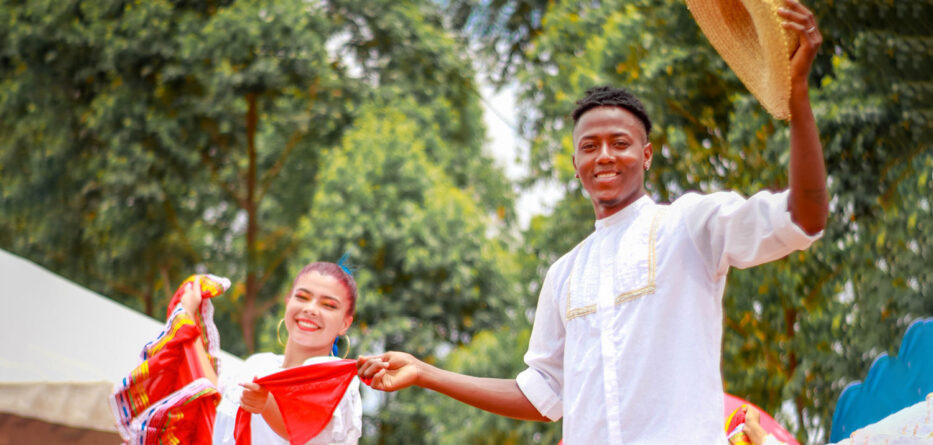February is Black History Month and even though Afro-Latino communities existed even before the founding of the United States, they have often been omitted as part of their historical memory.
In Latin America alone, it is estimated that between 20% and 30% of the population is Afro. The Afro community represents the most invisible minority, made up of some 133 million people, mostly concentrated in Brazil, Venezuela, Colombia, Cuba, Mexico and Ecuador. This means that, as a whole, Latin America has the largest population of Afro people in the world, outside of the African continent. Only 400,000 of the 10.7 million enslaved Africans were brought to the United States.
Currently in the country, some six million people identify themselves as Afro-Latinos. Many are unaware that their presence in North America dates back to the mid-16th century, yet they are generally not part of the Black History Month recognitions.
This is why ALL Latinos must understand the importance of recognizing TOGETHER the invaluable influence and history of the Afro-Latino community.
The challenge of being Afro-Latino in the United States
There is still a widespread view that Latinos are one race of people, rather than a diverse mix of African, Asian, European, and indigenous groups found here in the United States.
There is a common concern among Afro-Latinos migrating to the United States and trying to find a way to fit into American society. The Afro-Latino community is a group caught in the middle of the two main ethnic groups in the United States: African Americans and Latinos.
Because they are Hispanic, Afro-Latinos face some internal anti-Latino prejudices that have been projected by some members of the African-American community. This in addition to facing the very discrimination of the same Latinos of different ethnic groups.
5 Reasons to Honor Black History Month
The Afro-Latino community faced terrible challenges
After being enslaved, uprooted, and forced to learn Spanish, Afro-Latinos in the United States faced great challenges. They endured cruelty and terrible living conditions with the arrival of the English colonists. It is important that we recognize this inhumane part of history, honor it, and make it visible in our community.
The cultural legacy of the Afro-Latino community
The African and Afro-Latino diaspora have contributed their inexhaustible cultural wealth to American society. Their contributions not only carry the clear African ancestry, but also the heritage of the Spanish, as well as their own traditions and their diversity of languages.
Almost all successful Latin American musical genres have a rhythm of Afro origin: salsa, merengue, samba, rumba, guaguancó, bossa nova, cumbia, tamborito, joropo, chiqui chiqui, saya, candombe, among others.
Great representatives of literature, sports, politics and gastronomy have made history in the country. It was the Afro-Latinos who brought and mixed crops in the United States, using the wisdom of tropical agriculture that they knew in South America and the Caribbean.
Almost all successful Latin American musical genres have a rhythm of Afro origin.
The delicious and diverse flavors of our food
The Dominican mangú and the Puerto Rican mofongo are the perfect example (among many) of the African influence in our gastronomy. Our culinary culture was shaped by the millions of enslaved Africans who came to all of Latin America, many of whom had to feed themselves and their families with what little they had.
Afro-Latino history is also Latino history
Many of us grew up not knowing our full story. We identify as Latino, or Mexican, Puerto Rican, Guatemalan, etc., without fully understanding the evolution of those identities and the diversity of races and ethnicities.
For many decades, and because of racism and ignorance, we thought that something like Black History Month really had nothing to do with us.
We can say that there is now a new awareness of the difference between race and ethnicity, and we have increasingly made visible the implications of colorism within our own communities.
The Afro-Latino identity is gaining strength among Hispanics, but there is still a long way to go. The good thing is that we have come to learn the many ways in which Afro-Latino history is also Latino history and vice versa.
All Latinos, of all races and ethnicities, fight for the same thing
We all work and fight for the same things: justice, equal opportunities, equal pay, respect, dignity, living in peace. By acknowledging and understanding our stories, we can come together, stand up, and speak for each other with confidence, courage, and solidarity.
Let’s honor and celebrate our Afro-Latino history
We must honor the achievements and sacrifices of the African American and Afro-Latino communities, and acknowledge the horrors they endured to fight for the rights that they are not only free to exercise today, but rights that continue to benefit all groups, including our entire Latino community.
Let’s proudly celebrate Black History Month and the roots of our Afro-Latinos. We need to stop differentiating ourselves because we are all part of a diverse and colorful community.
30 famous Afro-Latinos that fill us with pride
- Zoe Saldaña
- Jharrel Jerome
- Tristan «Mack» Wilds
- Swizz Beatz
- Cardi B
- Rosario Dawson
- Dascha Polanco
- Miguel
- Joan Smalls
- Don Omar
- Gina Torres
- Tego Calderon
- La La Anthony (Vazquez)
- Victor Cruz
- Christina Milian
- Tatyana Ali
- Naya Rivera
- Yaya DaCosta
- Sarunas J. Jackson
- Esperanza Spalding
- Fabolous
- Amara La Negra
- Tessa Thompson
- Maxwell
- Carmelo Anthony
- Judy Reyes
- Arlenis Sosa
- Kid Cudi
- Bruno Mars
- Celia Cruz





